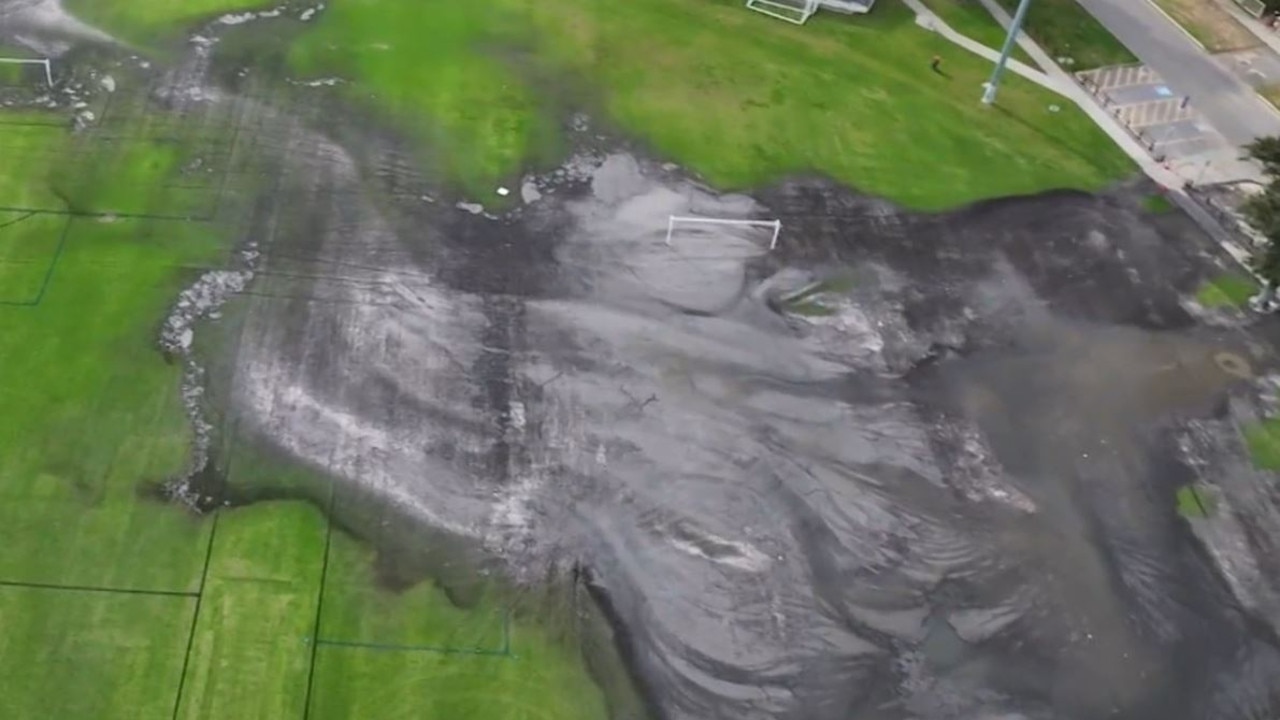Northern beaches businesses, Colormaker, Berkelo, Bella Bodies, Bush to Bowl lead a ‘green’ wave
Innovative businesses are coming up with new ways to look after our planet. Check out our top picks including a native bush food farm, biodegradable undies company and ‘green’ hair dye.
Environment
Don't miss out on the headlines from Environment. Followed categories will be added to My News.
A number of inspiring business owners are putting the planet before profits – and not only is it better for the environment, but customers are supporting them because of their green choices.
These innovative businesses are doing everything from using solar energy and electric vehicles to pushing the envelope in terms of coming up with new products that are better for the environment.
Heard of sourdough pasta? It’s not only more digestible, but its production uses less energy than your supermarket brand.
What about biodegradable undies and better-for-the-environment hair dye?
Check out our top ‘green’ business picks on the peninsula.
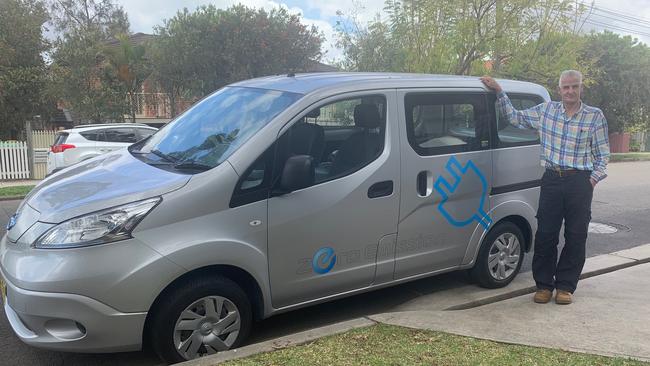
Colormaker Industries, Brookvale
Producing paint does not sound like an environmentally friendly business.
But David Stuart, 62, owner of Colormaker in Brookvale is leading the way in best practices to make it so.
In the last two years he has installed 100 kilowatts of solar panels to the roof of his factory in Brookvale, saving 300 tonnes of greenhouse gas, as well as 80 per cent of his energy costs.
Then Mr Stuart brought in an energy engineer consultant to further investigate how to be more sustainable.
He found that a quarter of the energy being used was going into compressed air and a lot of that was being wasted.
So he invested in three new pieces of equipment which were set up in the second week of July, which saw the energy bill for that month further reduced by 60 per cent.
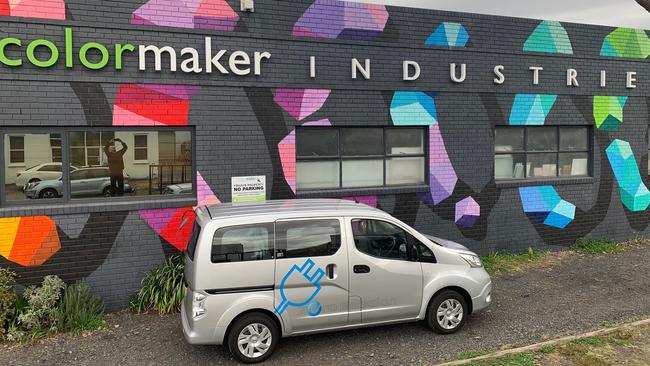
Mr Stuart also has an electric vehicle to deliver his products, which is powered by the energy created from the solar panels.
The fuel for the previous petrol-run vehicle cost $500 a month, now it costs $14.30, which is the cost of the electricity used if he was paying for it.
He said the $30,000 second-hand vehicle was comparable with the price of his previous petrol one.
“Our solar panels are producing twice as much of the energy we need, but at the moment we are not 100 per cent self-sufficient because we can’t capture all of it,” Mr Stuart said, who was born in Manly, but lives in Artarmon.
“We have just invested in a massive battery which when up and running will mean we will be able to cover 95 per cent of our business needs.
“If we continue to change our practices, I’m confident we can get to 100 per cent.
“We are committed to being carbon neutral by 2025 to 2030.”
He said the monthly cost of his loan for the solar panels, along with the cost of his current energy usage, is still lower than what his electricity bill was before.
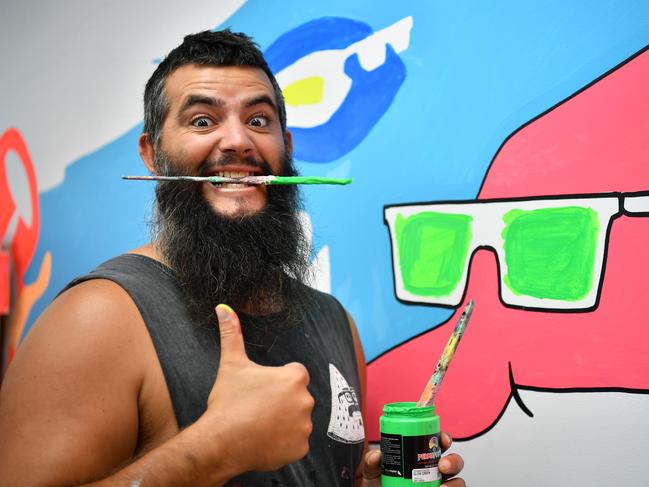
Mr Stuart, who started out as a chemist, is also continually trying to make his paint more environmentally friendly too.
He has created textile inks which have been organically approved by the UK-based Soil Association, which has stringent standards.
His other paints are also low in volatile organic compounds so are not as harmful to the environment and humans, as well as being plastic bead free.
“We invest heavily in developing solvent-free alternatives that might not be as good, but are much, much kinder to the planet,” Mr Stuart said.
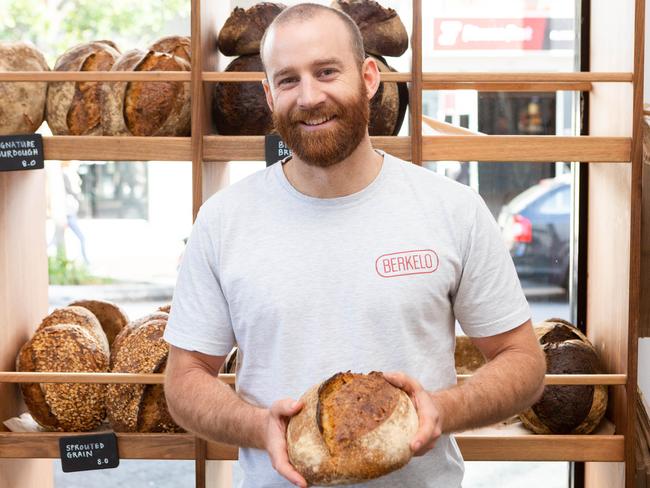
Berkelo, Brookvale, Manly, Mona Vale and Mosman
Chef Tom Eadie set out five years ago to “feed more people better food” based on the values of sustainability and health.
He started with the humble loaf.
He concentrated on simple ingredients including nutrient-rich, stoneground and roller milled flour from local organic and sustainable farms in the Hawkesbury and Gunnedah. He wanted to keep the produce as local as possible to ensure the product has a low carbon footprint.
“We have gone to the nth degree to know who the farmers are and how they operate so we are working with people that share the same environmental values as us,” he said.
The product is far superior to the cheap flour imports shipped from overseas, where all the good enzymes have been killed off in order to give it a long shelf life.
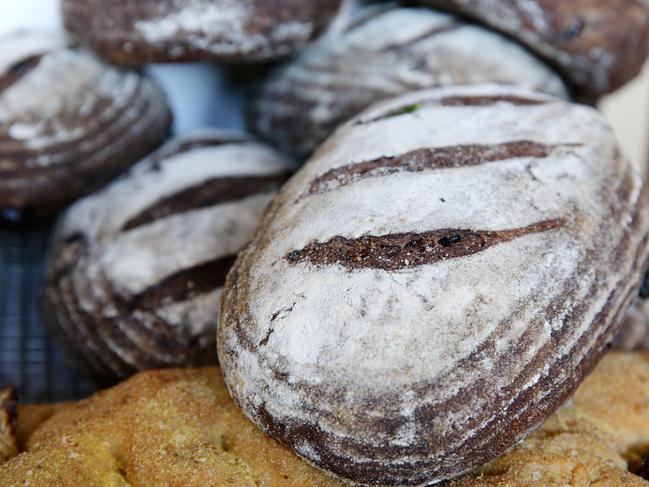
Once his ingredients are in the bakery, he has their special sourdough yeasts.
A Berkelo loaf is not a race, it is a 24 hour process.
“Life in the city is so fast,” Mr Eadie, 32, of Seaforth, said.
“I wanted to slow the process down.”
Since launching his business in Brookvale, he has opened outlets in Manly, Mona Vale and Mosman, selling mainly bread but also other food grown from his veggie garden in Terrey Hills.
There he uses native American planting techniques which involve planting corn, squash and beans, a mix proven to help each other grow successfully, while also nourishing the earth.
Those ingredients are used in pickles, chilli sauces, garden burgers and other foods available in the cafes.
Meanwhile, he has been working on a new product which he is about to launch – sourdough pasta.
He said there are a few people making sourdough pasta overseas, but this is a first for Australia.
With the help of head baker Matt Durrant, they spent two years developing the fermented pasta, which uses the same sourdough starter the bakery developed for its bread.
Every step in the pasta-making process is carefully considered to deliver a healthier product. It starts with the selection of chemical-free and sustainably grown Australian flours that are stoneground.
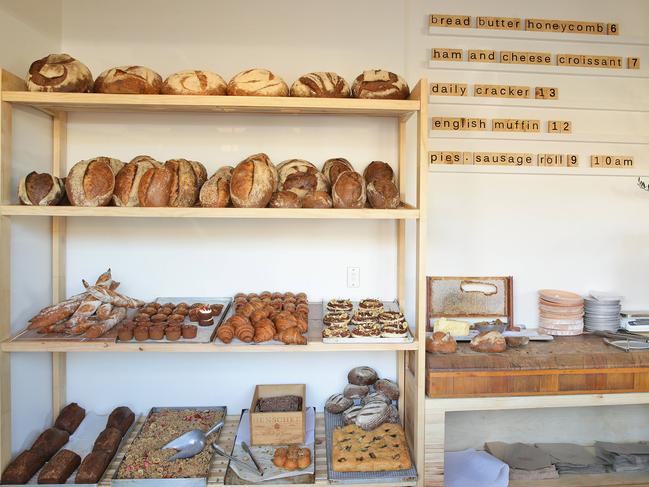
Unlike your typical mainstream pasta the temperature used to make the pasta is lower, which is also better for the environment and ensures the enzymes “stay alive”.
“This process allows the starches and the sugars to be more digestible,” he said.
But what does it taste like?
“It is not sour,” said Mr Eadie.
“It makes a beautiful bowl of pasta. The taste is not too dissimilar from what you are used to, but it’s denser, more nutritious, and contains less carbohydrates.”
His food is also more expensive. A signature sourdough loaf is $10 and 400g bag of pasta, which comes in compostable packaging, is also $10.
Mr Eadie said he could make more money if he didn’t care about the environment, but he has also gained customers because of his green ethos.
The business is continuing to grow and he now employs 50 full-time and casual staff.
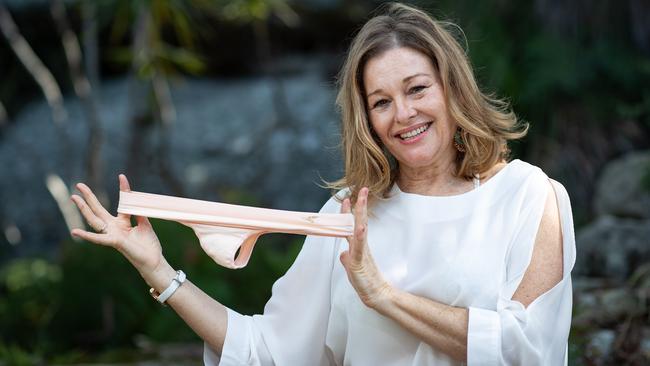
Bella Bodies Australia, Brookvale
Most people might not know that a pair of nylon undies take 200 years to break down when they eventually find their way to landfill.
Michel Schuhmacher, from North Narrabeen, who runs an online underwear shop Bella Bodies Australia out of Brookvale, says that fact is horrifying.
So, she has created a Bella Eco range of environmentally friendly undies — which are 95 per cent biodegradable and recyclable.
She uses an Italian manufacturer that uses cutting edge technology meaning less water and chemicals are used to make the product.
Other ranges are made with bamboo, which is fast growing tree only needs rain water to sustain it.
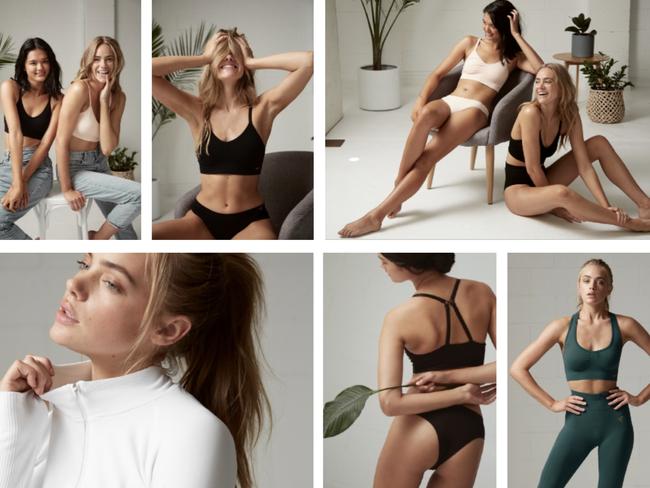
Ms Schuhmacher said the textile industry was the third biggest polluter in the world and it was the responsibility of any business owner to be environmentally conscious.
She uses mailers that are 100 per cent biodegradable and home compostable and FSC certified paper tags.
Excess stock goes to the Salvos or non-profit organisations, so nothing is wasted.
“Everything we try to is really about limiting the use of plastic,” Ms Schuhmacher said.
“We are concerned about the cost to the environment.
“We also look after our staff.
“They get paid for the hours they do.
“All this working for 60 hours for 40 hours pay is so old-fashioned.
“We want our staff to have a work, life balance so they can have time to do other things whether it be volunteer, church work or family.”
Recently Ms Schuhmacher has expanded into the UK market.

Pepita’s Ice Cream, Dee Why and surrounds
Melanie Chaix’s grandfather was a big ice-cream fan.
“He would literally eat it all the time,” she said.
“For me ice-cream is synonymous with holidays, being with my grandpa, who would say, ‘Don’t tell your grandma, but let’s go out and get an ice-cream’.”
When Ms Chaix, who is originally a pastry chef from France, opened up her ice-cream and sorbet business three years ago, she decided to make her products dairy-free to help reduce greenhouse gas emissions.
The UN found meat and dairy accounts for 14.5 per cent of the world’s greenhouse gas emissions — the same as all cars, HGVs, aircraft, and ships combined.
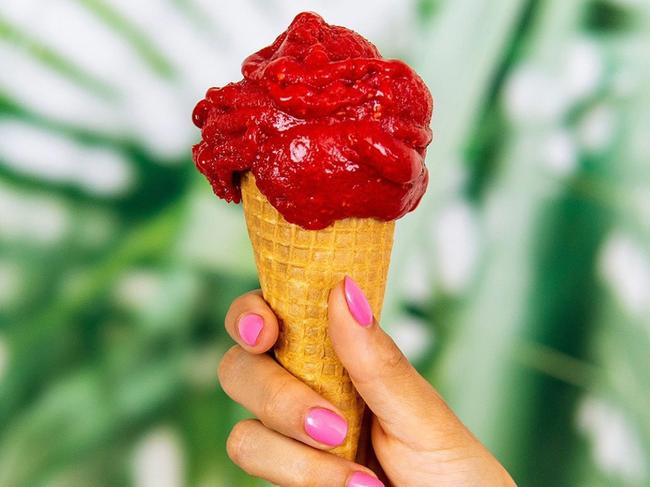
Ms Chaix experimented uses cashew and coconut milk to create that creamy taste and texture.
She also uses seasonal and local ingredients.
“I didn’t want any dairy in my ice cream because it is not the best for the environment,” she said.
“Like pastry, making ice-cream is like chemistry. Once you know the basics, you can experiment.”
She did thousands of trials to come up with different flavours including carrot and orange sorbet, which includes almost 60 per cent carrot juice.
Her ice-creams and sorbet have a high raw fruit and vegetable content, so need less sugar, unlike typical ice-creams.
Pepita’s also come in environmentally friendly compostable packaging.
If you bring your own container you get 10 per cent off.
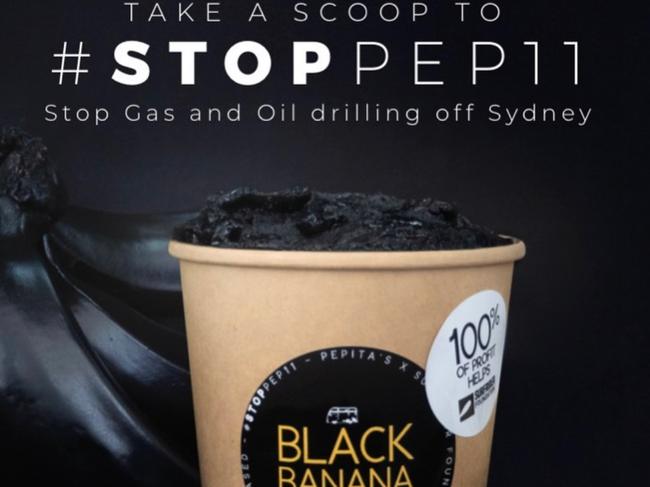
Over the next three months Ms Chaix is producing different flavours of black ice-cream to raise awareness of PEP 11 – which is a license for oil and gas drilling off the coast between Newcastle and Manly.
Independent Warringah MP Zali Steggall has launched a bill to stop PEP 11 from happening.
Ms Chaix, 26, of Dee Why, said she hoped to raise awareness of the offshore drilling proposal, as well as donating 100 per cent of their profits to support the Surfrider Foundation’s campaign to stop PEP 11.
Her ice-creams and sorbets are available at cafes in Collaroy Plateau and North Curl Curl and from her mobile van.

Bush to Bowl, Balgowlah
Did you know that lemon myrtle is high in citronella content, which helps to fight against disease? It has 10 times the antioxidants than green tea.
Lili Pilli Australe produces a fruit similar to the Pink Lady apple, but with a sour edge. It has 10 times the vitamin C of an orange.
Coastal Pigface has a flower that after it dies the centre of which tastes like a ‘slightly salty’ Kiwi fruit and the leaves produce an aloe vera type liquid that can soothe stings, bites and burns.
And then there’s Murnong, a yam that is starchy like a potato, but lower in carbs, higher in nutrients and sweet tasting like a coconut.
These are all native plants that are available in our local parks, or can easily be grown in our backyards. But why aren’t we eating what is all around us?
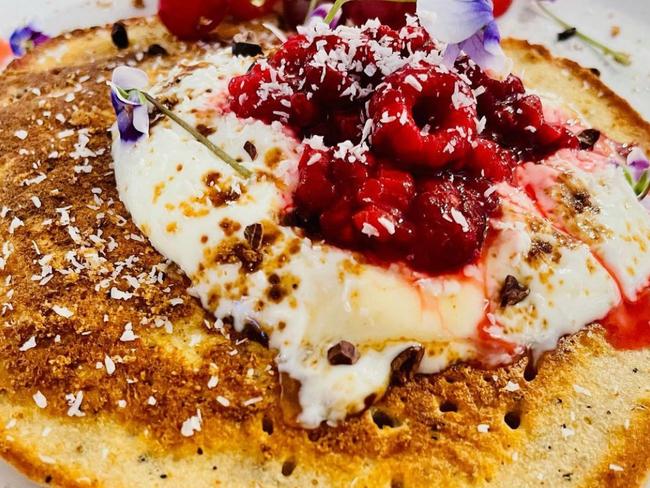
Clarence Bruinsma, a proud Yaegl man, and Adam Byrne, a proud Garigal/Gadigal man, are behind Bush to Bowl in Balgowlah, a 100 per cent Aboriginal owned and run farm and native plant nursery dedicated to growing and educating the public about native plants, particularly edibles.
They offer workshops, bush food walking tours and are raising awareness about threatened species, including the Seaforth mint, a critically endangered shrub which flowers in Spring and the Eastern Sydney sub species of the Acacia Terminalis – otherwise known as Sunshine Wattle – endangered due to the introduction of other more dominant wattles on the northern beaches.
“We want to change the way people engage with Aboriginal people and country,” Mr Bruinsma, a teacher, said.
“We want to change the way people care for country and our culture.”

He believes people should be eating healthy food that can be grown in the backyard.
“When we put native plants on country, it’s healthy for country,” he said.
“It puts nutrients back into the soil.
“Many people don’t realise that there are great foods and flavours to be enjoyed from plants in their backyards or local parks.”
The farm is also sustainable and encourages people to bring their own containers to collect food and their own water bottles.
“We reduce, reuse, recycle everything possible,” Mr Bruinsma said.
“We recycle all our pots and never use individual plastic signage for our plants. We use a non marker pen and write it on the pots.
“It takes time to do these things and we lose out in monetary terms.”
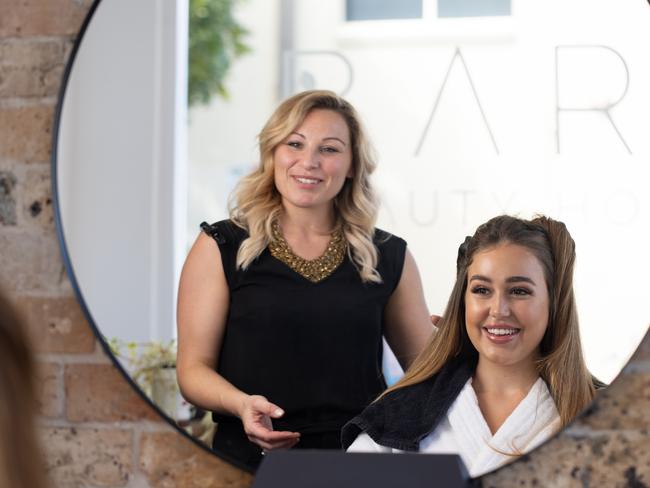
Bare Beauty House, Manly
You don’t expect a hair and beauty salon to have a veggie patch and a worm farm, or the nail polish to be vegan-friendly.
But it’s all part of the philosophy of this northern beaches business which wants to be as environmentally-minded and sustainable as possible.
Naomi Browner is behind Bare Beauty House in Pittwater Rd.
She said most hair salons aren’t known for being kind to the environment, with high water usage, chemicals used in treatments and colours, high power usage and product waste.
But Ms Browner said as well as offering sustainable and cruelty-free products – including an ammonia-free hair bleach made of kukui butter and nail polish that is non-toxic and vegan-friendly – she also wants to ensure everything is recycled.

“My love of animals, marine life, and nature have always driven me to become a better person and make better choices,” she said.
“I decided enough was enough. The ocean is suffering because of our negligence, and I needed to do something different within my industry that could impact my local community and encourage us all to make some positive changes.”
All salon waste is recycled through a company called Sustainable Salons and the salon uses special shower heads which purifies water and reduces the amount needed by 65 per cent.
As well as environmentally-friendly products, clippings from the veggie patch in the courtyard will go to local restaurants.
Meanwhile, Ms Browner, of Manly Vale, wants to incorporate a street library on the side of the property and start a regifting service where clients and the local community can re-use unwanted glass bottles, as well as offering a refill program for certain hair and beauty products.
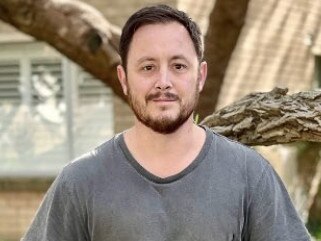
WickWorming
When teacher Oliver White built a sustainable garden at school with the help of his St Luke’s Grammar students he decided he wanted something similar for his home – an apartment, with the only outside space being a deck.
Despite scouring the market he could not find an all-in-one planter that allowed small households with limited space to grow plants, conserve water and compost food scraps.
So, the geography and history teacher decided to build his own in his Fairlight garage.
Mr White, 34, used a water wicking system which saves up to 80 per cent water compared to conventional garden beds.
It means that the planter box only needs to be filled every three to four weeks depending on the weather.
The design also incorporates an in ground worm farm, which helps reduce household food waste from entering landfill.
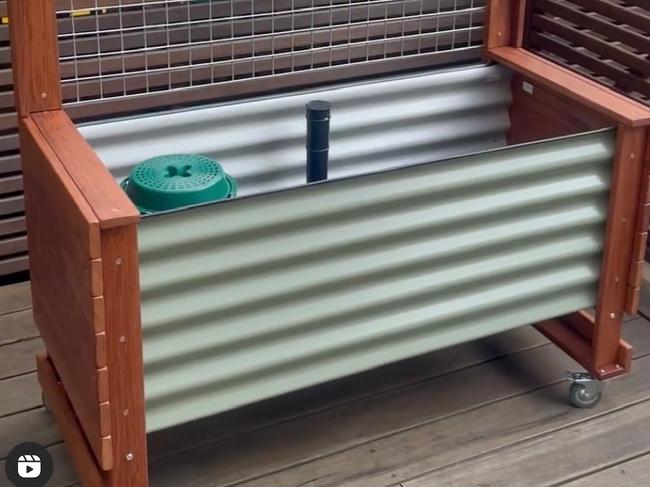
The worms can process up to 3kg of food waste a week when up and running.
Scraps plus worms equals a compost known as vermi-compost which can be fed back into the garden bed.
The juices from the worms and compost are also gravity fed into the wicking system and diluted with the water reservoir to provide valuable nutrients to plants for increased health and growth.
After finishing the original design and receiving a lot of positive feedback, Mr White decided to create a business to encourage households to be more sustainable in their habits.
“A big driver for me is that I’m a geography teacher,” Mr White, a father of an eight-month-old boy, said.
“I see that there is a mood to do the right thing, but there’s not all those things in place to allow people to be able to.
“Most of our food waste ends up in the red bins and goes to landfill and creates greenhouse gases.
“This is an entry level way people can get started. I also want to give back.”
A number of local businesses have decided to buy the planter box to grow their own herbs or veggies, including Pure Whole Foods and Jo’s Herbadashery in Manly.
Mr White’s design has now refined further and is now available as a flatpack version that can be shipped anyway in Australia, as well as small square planters for even smaller spaces.
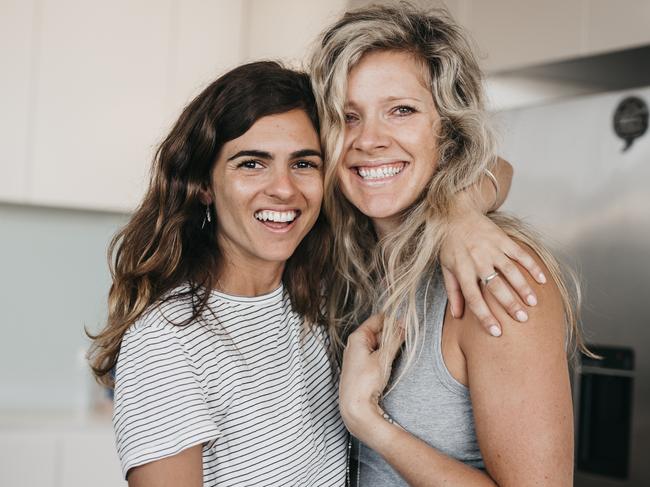
Ulu Hye
Ever heard of milk paste? This northern beaches company came up with the “world-first concept” to help cut down on Tetra Pak cartons.
Ulu Hye makes plant-based non-dairy ‘mylk’ bases in glass jars that comes in a variety of flavours – including hemp.
To make it into a liquid you blitz a spoonful with water in a blender for 60 seconds.
Business owners say the product has already helped save more than 600,000 Tetra Pak cartons from ending up in landfill.
Ulu Hye products are currently stocked in 500 health food stores and independent supermarkets.
It is now also now in demand with cafes keen to keep their customers happy by being able to tick the sustainability box.
Heidi Peuten, 35, of Freshwater and best friend Vasia Vogias, 36, of Byron Bay, came up with the concept after Ms Peuten found the process of making homemade nut milk for her lactose intolerant husband too laborious.

So, the pair commissioned food technicians to develop a variety of pastes made from nuts and even antioxidant-laden hemp – which has an earthy taste – with no nasties.
A 300g jar costs $29.95 and makes 10 litres of milk.
The tubs supplied to cafes are plastic because feedback from businesses was that they didn’t want glass in their kitchens, but the tubs are still easier to recycle and store than cartons.
Each tub is the equivalent to 22 one litre cartons.
Peter Murray from Pure Wholefoods in Manly said the product tastes great, but in terms of business it also goes a long way in cutting down on waste and transportation expenses.

Ms Peuten said while Tetra Paks can be recycled it is a difficult process, which is why some councils don’t bother.
Others have to sort them from the recycling, send them to a water mulching facility, where the different elements are separated and then send them on to another recycling centre.
She said the entire process of recycling a carton was costly and wasted a lot of energy.
“We grew a lot quicker than we anticipated, but the next stage is to get it into more cafes and help reduce the carbon footprint,” she said.




